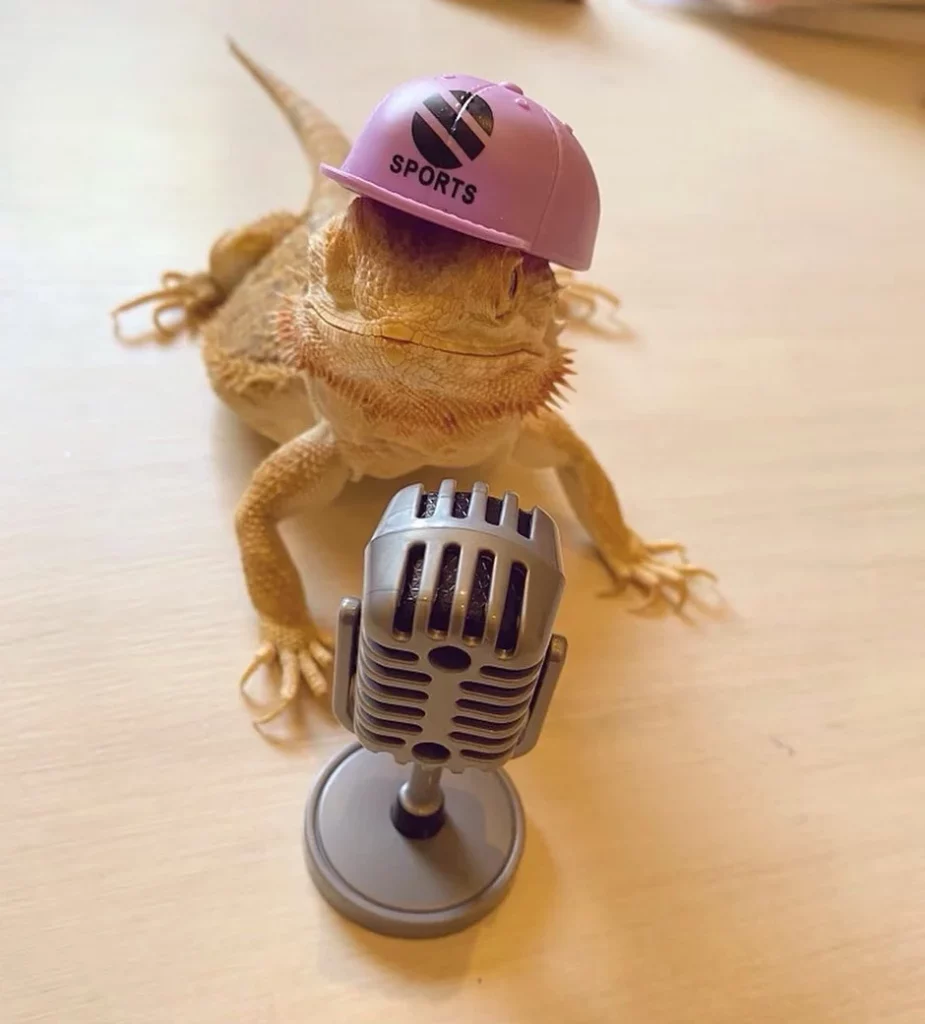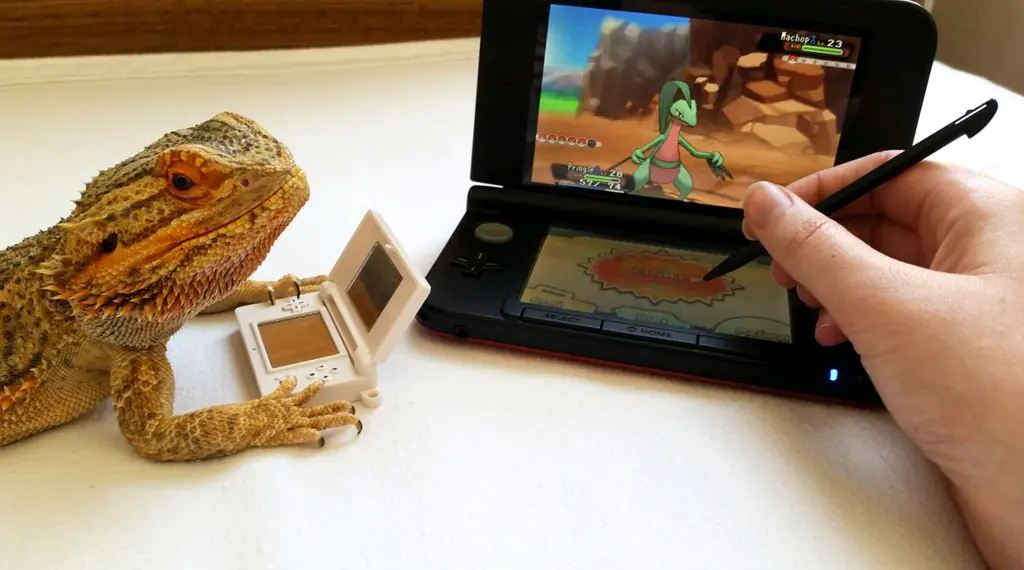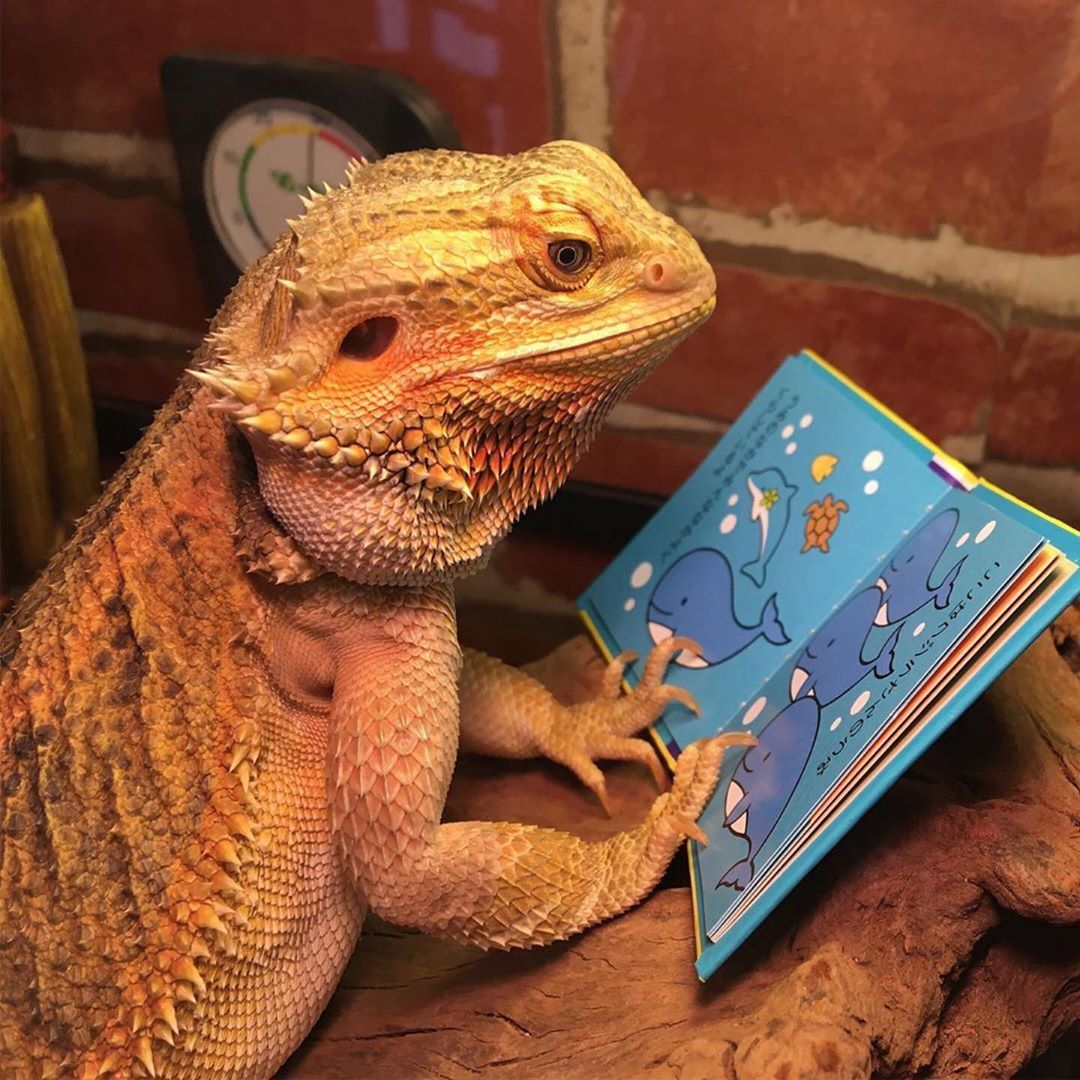Bearded dragons, or Pogonias, are a species of lizard native to Australia, New Guinea, and some of the nearby islands. They are popular as pets due to their docile and friendly nature and interesting appearance.
Bearded Dragons are among the most popular reptile pets due to their colorful personalities and relatively easy-care requirements. But do you know how smart bearded dragons are? In this article, we will explore the intelligence of Bearded Dragons, examining the research that has been done on their cognitive abilities, their social interactions, and their emotional intelligence.
There is no one-size-fits-all response to this issue since a bearded dragon’s intelligence is determined by a number of factors, including its age, gender, and habitat. Some bearded dragons, on the other hand, are known to be extremely bright and capable of learning new tricks and talents.
We will also look at how their intelligence compares with that of other reptilian species and how their care and environment affect their intelligence.
TL;DR
- They are intelligent creatures that can learn and remember things, respond to cues, and recognize their owners
- They can make decisions based on their experiences, form strong bonds with their owners, and solve basic problems
- They can be trained to do simple tricks and recognize objects
- Factors like age, gender, and habitat influence their intelligence
- Their problem-solving skills are evident in how they interact with their environment and make decisions to ensure their comfort.
How Smart Are Bearded Dragons
We will be discussing how smart bearded dragons are. We will cover these outlines,
- 1. Learning Intelligence
- 2. Decision Making
- 3. Problem-Solving
- 4. Curiosity
Learning Intelligence

To identify how smart bearded dragons are, we see that they can learn and remember certain things. For example, they can recognize their human caretakers and respond to their names when called.
They can also be trained to do simple tricks like shaking hands or waving. While they are not the most intelligent reptiles, they can learn behaviors, respond to cues, and even recognize their owners.
Bearded dragons are social creatures, and they can form strong bonds with their owners. They may come to recognize their owners’ voices and even respond to their names.
They may also learn rewarded behaviors, such as coming when called or moving to a particular spot. Bearded dragons can also be taught to recognize certain cues.
For example, they can be trained to stop eating when a particular noise is made or to move away when a specific hand gesture is used.
These behaviors are often taught through positive reinforcement, such as offering treats or verbal praise when they perform the desired action.
Bearded dragons can also be taught basic tricks. These can range from more complex behaviors, such as waving or shaking hands, to simpler ones, such as sitting still or standing on their hind legs.
Tricks are usually taught through a combination of positive reinforcement and repetition. Bearded dragons can also learn to recognize objects, such as favorite toys or food dishes.
With enough repetition and positive reinforcement, they can learn to recognize these items and even come when called. Bearded dragons are intelligent and curious creatures that can learn behaviours, recognize cues, and even recognize their owners.
As such, they can be great companions for the dedicated owner willing to put in the time and effort to train them properly.
Decision Making
In addition, bearded dragons have shown the ability to make decisions based on their past experiences. For instance, they may avoid certain foods or areas if they have been punished for exploring them.
This indicates that they can form memories and use that knowledge to make decisions. Bearded dragons have a strong ability to make decisions based on their environment.
When presented with a choice between two things, they can observe the situation and decide based on their preferences.
For example, they can choose which food they prefer or which substrate they’d like in their habitat. They can also decide which hiding spots they like best or toys they’d like to play with. Their decision-making ability is also evident in how they interact with their owners. [2]
We can see how intelligent bearded dragons are because they can have strong bonds with their owners and even recognize them when handled regularly.
They can make decisions about whether or not they want to be held or if they’d prefer to stay in their enclosure. They can also decide whether they want to come out and explore their environment or if they’d like to stay in their enclosure. Bearded dragons also can learn from their environment and their experiences.
As they observe their surroundings, they can make decisions about whether or not they should investigate something or they should stay away from it. This can be seen in their interactions with other animals and people, as they can choose whether or not they’d like to interact with them.
Bearded dragons have a surprising intelligence and decision-making ability that can surprise even experienced owners. With proper care and handling, they can make decisions based on their preferences and experiences and form strong bonds with their owners. They can even be taught simple tricks, making them even more fun.
Problem-Solving

Bearded dragons are also adept at problem-solving. They may be able to figure out how to open a door or latch to get to the food. They can also use their environment to their advantage, such as climbing trees to escape predators.
Bearded dragons can solve basic problems requiring them to identify a pattern or a situation. In the wild, they must make decisions daily to survive. This trait makes them intelligent, and we get to understand the intelligence of bearded dragons.
This type of problem-solving is also seen in captivity, as they can learn to identify familiar objects and respond to their environment. Bearded dragons can also recognize when something is out of the ordinary.
For example, if the temperature in the tank is too high or too low, they will move to a cooler or warmer spot. If the lighting is not correct, they may stop basking and seek a darker area. This ability can make their environment more comfortable and enjoyable for them.
Bearded dragons can also recognize when food is present and actively search for it. They will often use trial and error to figure out how to access food that is out of their reach.
This problem-solving ability can create enrichment activities for them, such as hiding food in different spots and allowing them to find it.
Bearded dragons have a unique problem-solving ability that can be both entertaining and beneficial to their care. Through careful observation, their owners can identify when they are using their problem-solving skills and use it to create a more stimulating environment for them. With the right care, bearded dragons can live long and healthy lives in captivity.
Curiosity
Finally, in order to determine the intelligence of bearded dragons, we must observe their curiosity. Bearded dragons have a sense of curiosity. They are curious about their environment and may even explore unfamiliar areas, showing that they can learn from their surroundings.
Conclusion:
Overall, bearded dragons are quite intelligent. They can learn, remember, and use their knowledge to make decisions. Bearded dragons have become increasingly popular due to their unique physical features, interesting behaviors, and easy care requirements.
They are active and enjoy climbing on rocks, branches, and other surfaces. They can be taught to recognize their owners and even respond to their names. Bearded dragons are omnivores, meaning they eat both plants and small insects. Now we know how smart bearded dragons are. Well, after reading this article, you may find the answer interesting.
Frequently Asked Questions
Are bearded dragons intelligent?
The ability to learn through imitation is deemed to be the apex of social learning and has long been considered a distinguishing feature of humans.
Do bearded dragons recognize their keepers?
This is not to say that your dragon will not behave affectionately. Many bearded dragons know their owner’s voice and aroma and exhibit numerous signals of comfort and familiarity in their presence. Even while it isn’t really love, this may build a very particular relationship.
Can bearded dragons comprehend what you’re saying?
Beardies are normally calm and recognize and respond to their owners’ words and touch. They may make excellent pets for anybody looking for a reptile that enjoys being held and brought out of its cage.
Are bearded dragons very smart?
Bearded dragons are intelligent reptiles with a high level of problem-solving ability, and they can identify their owners.
Do bearded dragons know their owners?
Bearded dragons may learn to identify and bond with their owners. They can become acclimated to their owner’s sight, scent, and sound and may exhibit joy or affection when they see them.
Can bearded dragons understand you?
Bearded dragons are intelligent reptiles who understand and respond to directions and cues. They can learn to correlate certain words or phrases, such as “come here” or “meal,” with specific behaviours.
Their language knowledge, however, is limited, and they respond primarily to visual and aural stimuli. They can also detect and react to their owner’s tone of voice and body language
Do bearded dragons show affection?
Bearded dragons express affection by following their owner around or attempting to get their attention. As a gesture of love, certain bearded dragons may nuzzle or softly brush their head on their owner’s fingers.
Hugues Beaufrere is the Exoticpetia’s senior writer and reptile expert. He has been fascinated by reptiles and monkeys since he was a kid and had years of experience in herpetology and primatology. He has cared for various kinds of Monkeys, Lizards and Reptiles and loves to share his knowledge and passion with others.


